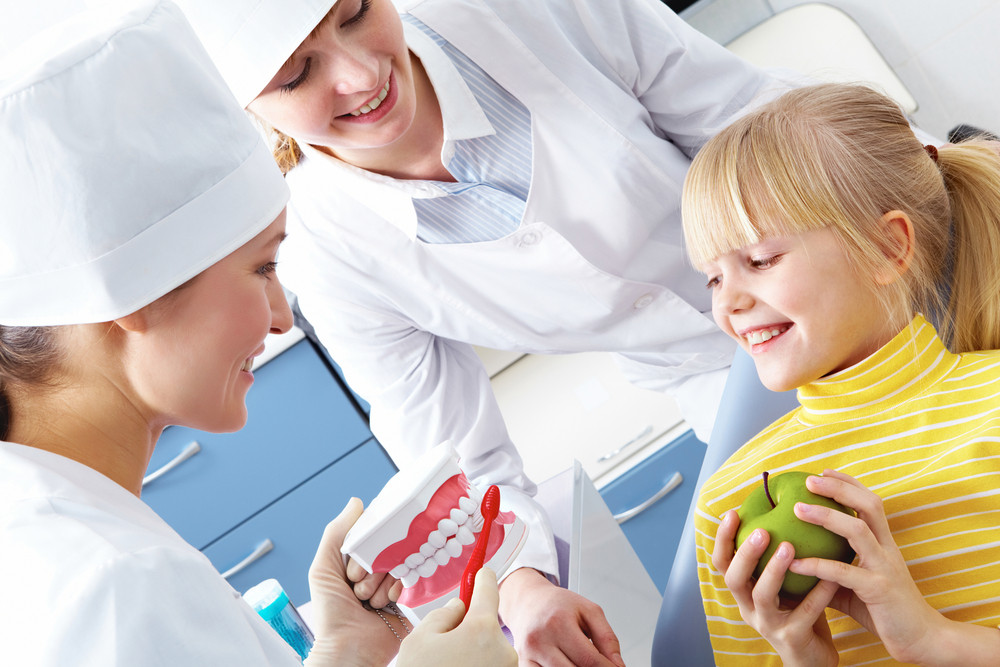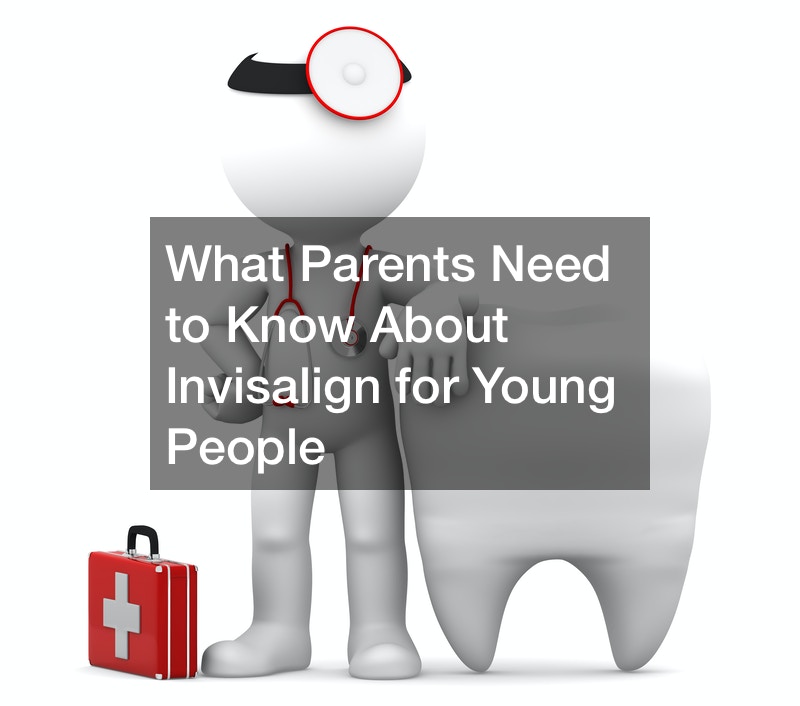
Your Child’s Dental Hygiene: The Top Questions On Every Parent’s Mind

Did you know that over 40% of children already have dental cavities before they reach kindergarten? This may be hard to believe at first — but less so once you consider how often adults dismiss the importance of dental hygiene for young children. Lots of otherwise responsible parents make sure to take their toddlers to the doctor and brush their babies’ hair — but they fail to realize that their young children need to start brushing their teeth, far before they’re capable of doing it for themselves. As soon as your baby’s teeth come in, you need to start brushing them. Yes, it’s true that baby teeth are baby teeth, and will eventually come out. But there is far more to dental hygiene than simply protecting the teeth that you have at the moment. For children, maintaining dental hygiene from a young age is also about forming good habits, and preventative care. But nonetheless, you shouldn’t be intimidating about caring for your child’s teeth.
If you’ve yet to prioritize your child’s dental hygiene, you shouldn’t feel bad. It’s understandable if you’re worried about typical doctor’s visits first — dentists’ visits tend to come later, and a lot of us are more likely to skip them than a regular check-up. A good dentist is often just as easily associated with high costs and drawn-out cosmetic treatments, as they are with necessary care. Remember that there are steps that you can take to make sure that not only is your child’s dental hygiene as strong as possible — but that you won’t have to spend extra money on unnecessary fixes down the road. Keep in mind that the choices you make regarding your child’s dental hygiene will affect them for the rest of their life. But with that being said, you shouldn’t let yourself get too worried about it just yet. You have time to make a plan, and find the right dentist for your family. Chances are that you have plenty of questions running through your mind regarding your child’s dental hygiene by now — and we’re going to get into them! So don’t stress. Let’s tackle this one question at a time!
How Do I Introduce Teeth Brushing To My Child?
There is a lot you can do to make brushing your child’s teeth a lot easier in the long term. While you should begin brushing your child’s teeth regularly once they hit twelve months of age, they may not love the idea at first. Think about how babies and toddlers react in general to being restrained — then consider the unfamiliarity of brushing their teeth. Of course, your baby won’t be coordinated enough to brush their teeth on their own, and they’ll likely try to fight off the unfamiliar sensations (and tastes). You’ll want to use a toothpaste that is specifically formulated for babies, and therefore often milder and less tingly. Baby toothpaste also usually contains less fluoride than regular toothpaste. You’ll want to hold your baby in your lap, facing them away from you and brushing both their teeth and their gums. Be gentle, and encourage your child to spit out the toothpaste once you’re done. Just as we brush our teeth at least twice a day — ideally after every meal — you should introduce this regular routine to your baby. Once they become more coordinated, encourage them to start taking control of the process. Flossing can come later, once your child is old enough to actually have enough teeth to floss! Of course, brushing your baby’s teeth also prepares them for their first dental appointment, which should come around the same time. Your child will see a dentist, ideally, at least twice a year from then on. Don’t be surprised if the unfamiliarity of the experience prompts a tantrum. A good family dentist will not only be experienced with this type of behavior but fully prepared and ready to help you handle it.
What Do I Do If My Child Has Anxiety About The Dentist?
Unfortunately, fear of the dentist doesn’t always fade with age. Plenty of adults remain afraid of the dentist; it’s an irrational phobia that many begin developing as children. Lots of kids have a fear of the dentist that links to a fear of doctors as general — though some people are particularly anxious about the dental experience. This often has to do generalized anxiety, as well as a lack of control in the dental experience. Dentists do their best to deal with this at the office, often playing soothing music, decorating their spaces with bright artwork, and employing assistants who know how to work with children. However, it’s important to work with your child regarding their fears and prevent them from getting out of hand. In extreme cases, this could involve working with a therapist or psychiatrist and dealing with underlying anxiety disorders. Your child may even need medication to help with the issue — many mental health professionals are currently looking into more natural alternatives as well, such as CBD oil for anxiety. Ultimately, you do need to take the fear of the dentist seriously; otherwise, it could follow your child for the long term.
Are Braces Really Worth It?
Once your child reaches elementary school age and starts approaching middle school, you may start to consider more long term dental treatments, like braces. Braces are often heavily debated among parents today — but if your family dentist recommends that your child see an orthodontist, you must take their recommendations seriously. Braces are used to treat a number of issues. Yes, they can correct crooked teeth, straightening them out. But they’re also used to move teeth in general — if your child’s mouth is overcrowded, this could be quite important in terms of correcting their bite and ensuring long term dental hygiene. At times, kids can be born with more unique dental issues, like missing adult teeth, or even teeth in the wrong places. Braces can be used to move the teeth around so that more permanent corrections — sometimes involving oral surgery — can be made. With that being said, lots of kids tend to be resistant to the idea of braces. This is because traditional braces are immediately recognizable, and children can sometimes get teased about them (though not as much now, when braces are rather commonplace, as was once the case). Your child shouldn’t feel ashamed of their braces, and it’s important that you reassure them. Orthodontists often offer children the ability to choose the color of their braces, as well as brightly colored bands to accompany them. This makes the experience somewhat less traumatic, more personalized, and more fun. A lot of parents like to consider the alternatives to traditional braces as well. The most well-known alternative is Invisalign braces. Invisalign braces differ from traditional braces in that they essentially lack the same level of visibility. Essentially, Invisalign braces are clear and are fitted over the teeth and removed when the wearer is eating. This does require a good bit of responsibility for children; they must not only remove the Invisalign braces before eating but keep them in a safe place and remember to put them back on. While you can monitor your child when they’re at home, when they’re out or at school you’ll have to consider whether or not they’re taking care of their Invisalign braces — which are not, needless to say, inexpensive. In fact, they’re usually more costly than regular braces. The fact is that only you can decide whether traditional braces for kids or Invisalign braces are better for your child. But if braces are recommended by a dentist and orthodontist, it’s likely that something should be done — and just as you take your dentist’s advice regarding dental hygiene, you should take your orthodontist’s advice regarding the type of braces that would be right for your child.
Should I Have My Child’s Wisdom Teeth Preemptively Removed?
As your child goes to regular dental appointments, your dentist will keep a close eye on their wisdom teeth. Most people have four wisdom teeth, two on their upper jaw and two on their lower jaw. These teeth are at the very back of the mouth and are essentially useless — which is they often don’t immediately emerge. In the past, it used to be quite standard for wisdom teeth to be removed before they could emerge, but now some parents see wisdom teeth removal as unnecessary. Dentists’ opinions on the topic vary. Some dentists see wisdom teeth removal as mandatory, where others handle the surgery on a case by case basis. Many people think of wisdom teeth removal as somewhat traumatic; it can involve general anesthesia, and the recovery times vary. Usually, recovery involves stitches in the mouth, as well as some degree of swelling and soreness. Many parents become concerned about the painkillers dentists prescribe to treat the pain during recovery time. However, many concerns about wisdom teeth removal are quite inflated. The surgery is very routine and simple. Most children feel much better within days of their surgery — and in fact, it’s often easier for kids to recover than adults. You’ll also find that, due to rising concerns regarding opioid dependence in today’s world, many dentists prescribe painkillers that are no more serious than extra strength ibuprofen — and as the pain and swelling following wisdom tooth surgery are relatively minimal, most don’t need much more than that. You’ll also find the risks involved with putting off or avoiding wisdom tooth removal are higher than the risks involved with surgery. For one thing, wisdom teeth often make maintaining dental hygiene much more difficult for kids. It’s harder for them to reach their wisdom teeth, especially as they first emerge — and food can get caught in those teeth without them realizing it. This can lead to cavities. Furthermore, wisdom teeth are often unable to emerge at all, which means that they become impacted. This causes swelling, as well as infection and sometimes abscesses. The abscesses associated with wisdom teeth cause severe pain, as well as fevers. They can create serious health issues, including infections that can poison the sufferer’s blood. You must take your child’s wisdom teeth seriously; and if your dentist recommends that they are removed ahead of time, move forward with having it done as quickly as possible. This isn’t just about dental hygiene — but your child’s overall health.
Again, we don’t judge you if you’ve been putting off your child’s first dental appointment. Oral health does often seem secondary to general physical health, though it shouldn’t. Furthermore, we often associate dental appointments with stress, and as we take them less seriously it’s easier for us to avoid them. But going to the dentist now is not like it was when you were a child — check-in software makes the process easier than ever from the start, and family dentists have taken a lot of steps to create a calming atmosphere and ensure that your child is not only well cared for, but as relaxed and unafraid as possible. Something as simple as ensuring that your child has braces or gets their wisdom teeth removed in a timely manner can make their life a lot easier as they grow up, as will building good dental hygiene habits from the start. So — now that you’ve had a few questions cleared up, it’s time to make a plan. Get that first appointment made, and begin building a relationship with your family dentist. You’ll be glad that you did!
AUTHOR: CAROLINE SIBLEY
Caroline is a freelance content creator and creative writer. VCUArts alum with a focus on the arts, travel, and culture.


